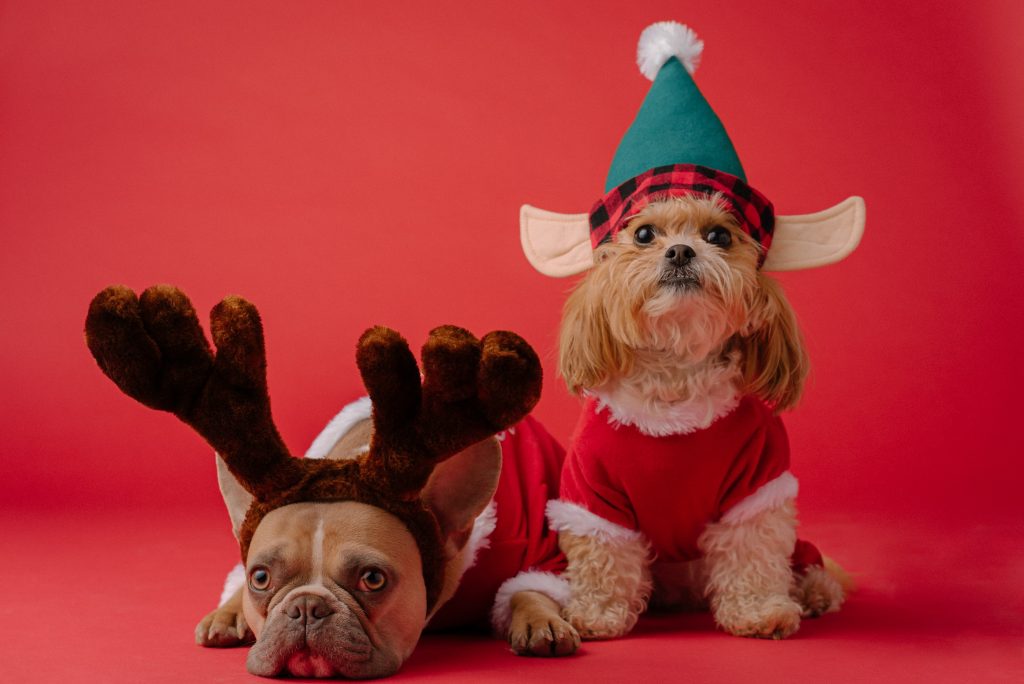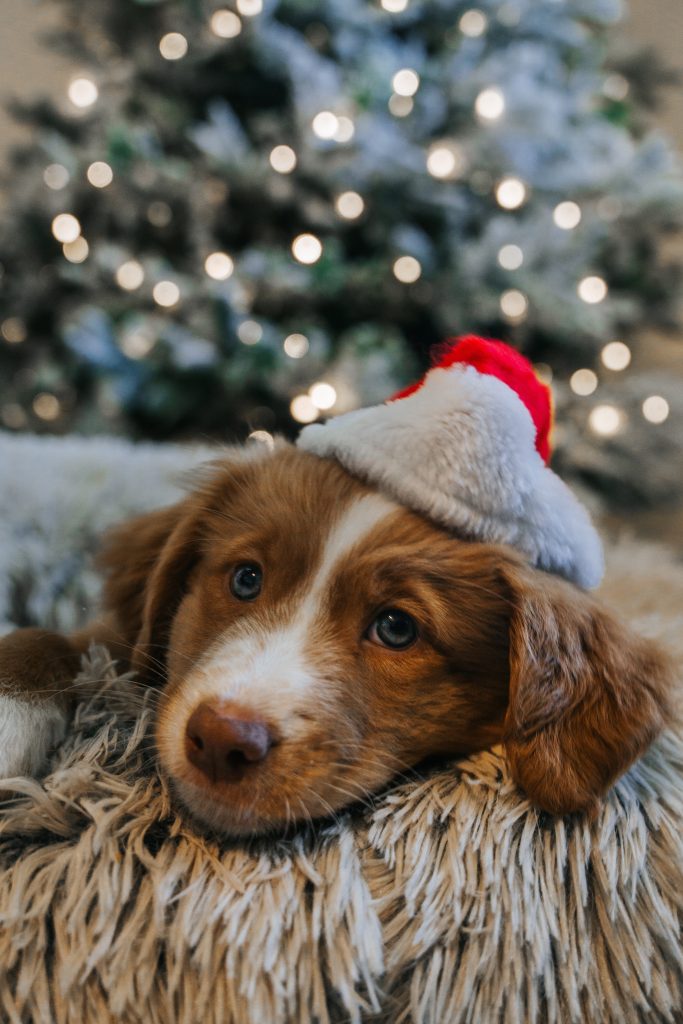Stay informed about the holiday hazards for dogs such as toxic foods and decorations, and learn how to keep your furry friends safe and healthy during the festive season.

Overview of Holiday Hazards for Dogs
The holiday season brings about an array of potential hazards for dogs, necessitating a comprehensive understanding of these risks to ensure the safety and well-being of our furry friends. Festive periods often involve an abundance of food, decorations, and plants that can pose significant dangers to dogs. For example, common holiday foods such as turkey or steak bones, chocolate, and table scraps high in fat can lead to severe complications and even prove fatal if ingested by dogs. Additionally, decorations like tinsel, ribbons, and string can cause stomach and intestinal damage if pets accidentally consume them.
It is essential for pet owners to recognize the potential dangers associated with holiday foods, decorations, and plants, as well as to take proactive measures to safeguard their dogs from these hazards. By fully understanding the risks and implementing preventive strategies, pet parents can create a safe and enjoyable holiday environment for their canine companions. This involves being mindful of the toxic plants for pets, such as poinsettia, mistletoe, and holly, and familiarizing themselves with the symptoms of ingestion, which can range from gastrointestinal distress to kidney failure and even death [1]. With this knowledge, pet owners can take the necessary precautions to prevent their dogs from accessing harmful items, thereby minimizing the risks associated with holiday hazards.
Common Holiday Foods to Avoid
During the holiday season, there are several common foods that can pose a threat to the well-being of dogs. For instance, bones, particularly from turkey and steak, can splinter and cause gastrointestinal blockages or lacerations in dogs. This is a significant concern for pet owners during family gatherings or festive meals where these foods are often served.
Moreover, chocolates, candies, garlic, and onions are also known to be harmful to dogs. Chocolate contains theobromine and caffeine, which can lead to vomiting, diarrhea, seizures, and even heart failure in dogs if ingested in significant amounts. Similarly, garlic and onions can affect red blood cells and cause anemia in pets, making them foods to be cautious about during the holiday season. Therefore, being mindful of these food items and ensuring they are kept out of reach of pets is crucial to safeguarding their health and preventing any potential emergencies during the festivities.

Hazardous Decorations and Toxic Plants
During the holiday season, decorations and plants can pose serious risks to our furry friends. For example, tinsel, ribbons, and string are hazardous for pets as they can cause severe stomach and intestinal damage if ingested. This is because these items can create blockages or even lacerations in the digestive system, leading to severe health issues for dogs.
Moreover, it’s crucial for pet owners to be aware of the toxic plants that are commonly used in holiday decorations. Poinsettia, mistletoe, and holly are some of the most common toxic plants that can cause harm to pets if ingested. For instance, poinsettias can cause irritation and stomach upset when swallowed, while mistletoe and holly can lead to more severe symptoms such as gastrointestinal distress, kidney failure, and even seizures [1]. Therefore, it’s essential to keep these plants out of reach and to promptly seek veterinary care if a pet ingests any part of these toxic holiday plants.
Health Risks and Symptoms
It’s crucial for pet owners to understand the health risks associated with the consumption of toxic holiday foods and plants. For example, chocolate can cause vomiting, diarrhea, seizures, and heart failure in dogs, while grapes and raisins can lead to acute kidney failure in pets. Similarly, poinsettias, mistletoe, and holly can cause oral irritation, gastrointestinal distress, kidney failure, hypotension, seizures, and even death if ingested by pets.
In addition, certain holiday foods such as table scraps high in fat, turkey or steak bones, and mints containing xylitol can lead to severe complications and even death in pets. For instance, turkey or steak bones can cause pancreatitis and injuries if eaten by pets. Recognizing these symptoms and potential complications is crucial for pet owners to take immediate action and seek veterinary care if their pet shows signs of illness or ingestion of hazardous items [3].
Preventive Measures for Pet Safety
In addition to being cautious with candles, essential oils, and Christmas tree decorations, pet owners can also take steps to ensure the safety of their dogs by avoiding certain holiday foods. For example, it’s crucial to keep table scraps high in fat, turkey or steak bones, and mints containing xylitol away from pets, as these can cause severe complications and even death if ingested.
Another important preventive measure is to be mindful of the potential dangers posed by tinsel, ribbons, and string. These decorative items can cause stomach and intestinal damage if ingested by pets, making it essential to keep them out of reach. Additionally, keeping an eye on the presence of toxic plants such as poinsettia, mistletoe, and holly in the home is crucial. Understanding the potential symptoms if these plants are ingested can help pet owners take immediate action if necessary, ensuring the well-being of their dogs during the festive season [1].
By taking these preventive measures, pet owners can significantly reduce the risk of their dogs encountering hazards during the holidays, providing a safe and secure environment for their beloved pets [1].

Immediate Action and Conclusion
It is crucial to act swiftly if a pet ingests a hazardous item or exhibits signs of illness during the holiday season. Promptly seeking veterinary care or contacting Poison Control can make a significant difference in the outcome for the pet. For instance, if a dog ingests tinsel, ribbons, or string, it’s essential to monitor for symptoms such as vomiting, diarrhea, or signs of abdominal discomfort, and then seek immediate medical attention if any of these symptoms occur. Similarly, if a pet accidentally consumes toxic holiday foods like chocolate, it’s important to be aware of the potential symptoms such as restlessness, increased heart rate, tremors, and seizures, and promptly seek professional help if any of these signs manifest [3].
In conclusion, the holiday season is a time of joy, but it also poses numerous risks to pets. By remaining vigilant and taking immediate action when necessary, pet owners can ensure the safety and well-being of their beloved animals. The significance of awareness and preventive measures cannot be overstated, as they play a pivotal role in safeguarding pets from holiday-related hazards [3].
